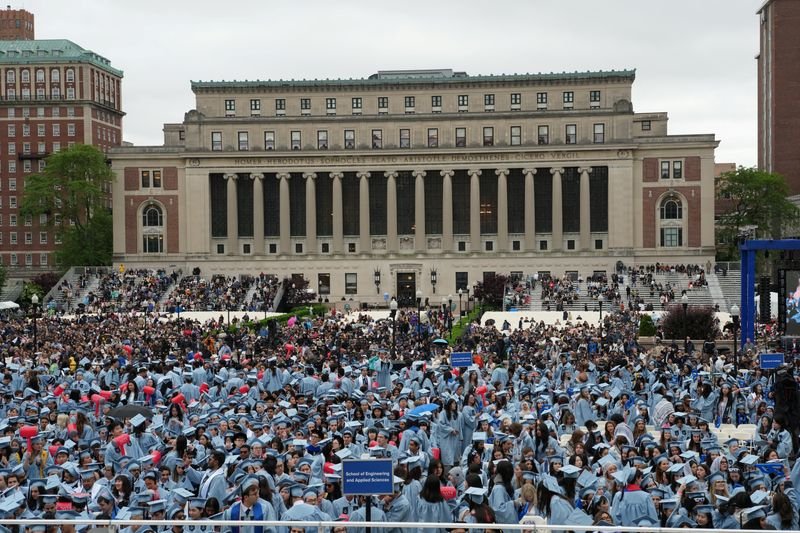A federal judge dismissed a lawsuit filed by Columbia University faculty members against the perceived anti-Semitic culture that President Donald Trump instigated, cutting off federal funds to “institutions of higher education that promote anti-Semitism and discriminate against Jewish students and scholars.” These faculty members said that the cuts from Trump’s office were especially problematic because they targeted actual academic freedom and were political. The court ultimately held that the plaintiffs did not have standing and could not credibly show they were injured. Without a doubt, this case has broad implications at the intersection of politics, education policy, and free speech. It suggests important limitations relating to the government’s role concerning universities, definitions of anti-Semitism, and the community’s ability to be free academics.
Context
The legal controversy began with a 2019 executive order issued by then-President Trump stating that federal agencies should consider Title VI of the Civil Rights Act in evaluating evidence of anti-Semitism on college campuses. Title VI prohibits discrimination based on race, color, or national origin in programs receiving federal funds. The order suggested that incidents of anti-Semitism, including criticism of Israel, could be a violation of civil rights protections under Title VI. This position was confirmed by the definitive statement of the International Holocaust Remembrance Alliance (IHRA) about anti-Semitism.
Columbia University drew a larger focus in this controversy. Several Jewish students reported feelings of insecurity and alienation during campus experiences where pro-Palestinian activism was prominent. The federal investigation into possible anti-Semitic behavior at several universities began.” Some faculty members at Columbia also criticized the executive order, saying it equated political criticism with hate speech, and their academic freedom was being threatened.
In 2020, some Columbia faculty filed a lawsuit against the Department of Education claiming that the policy unconstitutionally chilled speech and imposed unjust funding cuts. They argued that the Trump administration had weaponized federal funding in order to pressure institutions to silence criticism of Israeli policies, especially in Middle Eastern studies and ethnic studies programs.
Judicial Rationale and Standing
The federal court dismissed the case based entirely upon procedural grounds. Judge Naomi Reiss, the trial judge, found that the Plaintiffs did not show any tangible injury that was directly connected to the loss of funding. The ruling asserted that the faculty members were not directly affected by the alleged funding removal, nor could they demonstrate that the government’s actions made a tangible reduction in the expression of their academic work.
Legal scholars point out that when establishing “standing,” or the ability to bring a case, plaintiffs need to show that they have suffered a particularized harm. In this case, the court found the link between the policy and harm to faculty members to be too speculative.
Implication
The case will have broad implications for universities’ management of politically sensitive subjects, especially in subjects such as Middle Eastern studies, where one might expect to find discussion of Israel and Palestine, and could incentivize future administrations to abuse funding, to control campus speech a precedent that some may find troubling for institutions that ought to foster open inquiry.
Additionally, the outcome might discourage other schools or faculty from launching a similar battle against federal dominance, which could assume the available possibility of an equally challenging procedural roadmap. It might also leave unanswered questions regarding the boundaries of free speech in the college environment (particularly about civil rights) unresolved.
Although the dismissal of the Columbia faculty lawsuit may appear as a mechanistic legal outcome, it has larger implications for American higher education. It emerges from a longer chain of events replete with the challenges of enforcing civil rights while also ensuring academic freedom, and ultimately, the challenges of holding federal policy accountable through the courts. The case is also a part of a broader trend of framing education policy as a mechanism for political messaging.
Going forward, institutions will have to consider how to weigh the rights of children to feel safe in their learning environment while having strong critical dialogues. As administrators and politics change, the constant tension between institutional oversight and autonomy within academics will likely remain and likely will grow as well.
Keep reading questiqa.us







Average Rating